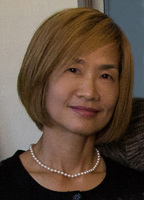60년 넘게 전쟁상태인 나라가 세상에 어디 있습니까?
전 세계 여성의 힘으로 반드시 한반도의 전쟁상태를 종식하기 위해 서로 힘이 되면 좋겠습니다.
Women Peace Walk 2016 여성평화걷기 2016
여성의 힘으로 평화를!
4백만 생명들이 1950-53년 한국전쟁으로 인해 사망했으며, 대다수는 민간인이었습니다.
1천만 가족들이 DMZ로 인해 서로 갈라져 있습니다.
7천만이 넘는 한국인들은 남북 갈등으로 인해 전시 상태 속에서 살아가고 있습니다.
임시적인 정전협정으로 전쟁이 중단된 후 60여년이 넘도록, 우리는 아직도 평화협정을 기다리고 있습니다.
미국, 중국, 러시아, 일본과 남북한은 아직 풀리지 않은 갈등이 부채질하는 군사무장을 목적으로 1조 달러를 쓰고 있습니다.
전쟁 없는 한반도! 생명 평화 상생의 한반도를 위해 우리는 계속 걸을 것입니다.
http://www.wpwalk.kr/
http://www.peoplepower21.org/Peace/1416823
To accept the current state of
the Unending Korean War without a peace treaty is akin to accepting and enduring the condition of domestic violence. We can and must stop this! And, women can. Our Korean sisters will be joined by our sisters from many international peace and women’s organizations. Please see below the information.
What we want to say: (Your local press and media are welcome to quote these points)
1. We are women from the region representing many national and international peace and women’s organizations, including WILPF, GPPAC, Korea Peace Network, Code Pink, Vets for Peace. We were also members of last year’s WCDMZ delegation.
2. We are here to show our solidarity with the Korean women who want to a de-escalation of military tensions through dialogue; to highlight the need for a peace treaty to replace the Armistice Agreement; and to ensure women’s leadership in the peace process.
3. We are here because we are concerned with heightening tensions between countries and militarization of the region. We view the unresolved Korean War as a dangerous flashpoint that could engulf the region into armed conflict/war.
Why we believe women must be involved in peace process:
1. Not only do we make up half the world’s population and are disproportionately impacted by war and military conflict, women’s involvement in peace negotiations lead to better outcomes. New research from the Philippines and Colombia, on top of the experience from Liberia and Northern Ireland, shows that when women and men participate equally, the greater the prospects of achieving a durable peace agreement.
2. Women’s inclusion in peace building is enshrined into international law through UN Security Council Resolution 1325. Sadly, fifteen years later, fewer than ten percent of women are negotiators, and even fewer at the Korean peace table.
3. Until women peacemakers are officially included, we will continue to take our calls for a peaceful resolution to this decades-old conflict to public squares and streets around the world, including the DMZ.
The 2015 Women Cross DMZ Movement
The 2015 Women Cross DMZ movement focused on a non-militaristic discourse of peace transmitted to a global audience through intense international media coverage and incorporated two main themes and ideas pertaining to the WCDMZ’s discourse of peace: 1) the critical role of citizen-diplomats in breaking the Cold War mentality; and 2) the role of women peacemakers in international affairs and conflicts.
1) Citizen-diplomats can break down the cold war barrier
During the height of Cold War in Europe, historian E.P. Thompson, argued that citizen-activists could force their governments to disarm and breakdown the cold war bloc system by mobilizing opposition both to the arms race and the politics of divisiveness. Indeed, research on the European peace movement shows that vibrant peace activists can be especially crucial to shaping the discourse of peace as well as the process of re-unification. It was the concept of activist as citizen-diplomat that the WCDMZ movement embodied in their historic crossing of the DMZ. Like the citizen-diplomats in the European peace movement, WCDMZ activists cited their principal mission as breaking the Cold War mentality. By crossing the physical barrier of the DMZ, they hoped to break through the ideological barriers that continue to reinforce the division between the two Koreas.
2) Women placing a global spotlight on Korea
The second theme advanced by the WCDMZ movement was that of a feminist approach to international conflicts—i.e., the role of women in international affairs, particularly with respect to issues involving conflict and war. Organizers pointed out the critical role that women have played in other conflicts, and highlighted what they cited as the unique capacity that women possess for ending conflicts. They emphasized the plight of Korean families divided by six decades of conflict, and suggested that women activists in particular can be effective ambassadors for addressing such issues. The WCDMZ movement achieved global media attention during its march through the DMZ, and utilized this focus to increase awareness of the human cost of the inter-Korea conflict, and to project its message of peace and reconciliation worldwide. The movement WCDMZ demonstrated the significant impact that international peace makers can exert on publicizing the dialogue of peace in the Korean peninsula, as well as the central role played by international media outlets in transmitting and reinforcing a non-militaristic discourse of reconciliation as an alternative to Cold War ideology.

시몬 천
노스이스턴대 국제정치학 강사

